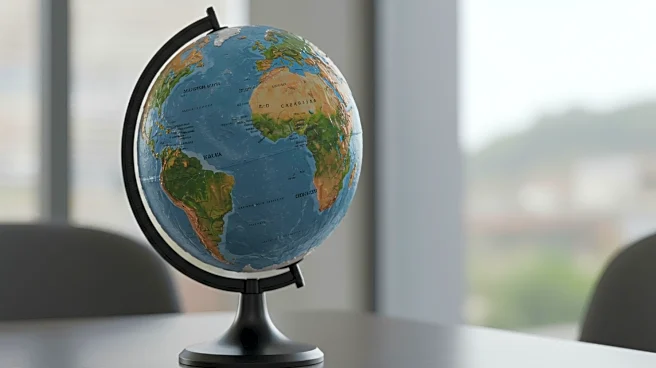What's Happening?
Negotiators in Geneva are reviewing a new draft of a treaty aimed at addressing global plastic pollution. The draft does not impose limits on plastic production or address chemicals used in plastic products, which has been a major point of contention. Approximately 100 countries advocate for production caps and addressing toxic chemicals, while oil and gas-producing nations and the plastics industry prefer focusing on waste management and reuse. The draft has been met with disappointment from various delegations, including Colombia, Panama, and Canada, who argue it lacks ambition and global obligations necessary to combat plastic pollution. The United States has expressed concerns over six articles but has not specified details. India, however, considers the draft a suitable starting point.
Why It's Important?
The outcome of these negotiations could significantly impact global efforts to reduce plastic pollution. Limiting plastic production is seen by many countries as essential to addressing environmental concerns, while others argue for improved waste management strategies. The treaty's direction could affect industries reliant on plastic production, including oil and gas sectors, and influence global environmental policies. Countries advocating for stricter measures may push for more comprehensive solutions, potentially leading to international regulatory changes that could reshape industry practices and environmental standards.
What's Next?
Negotiations are set to continue, with a new version of the draft expected on the last scheduled day of talks. Delegations will likely continue to debate the inclusion of production limits and chemical regulations. The chair of the negotiating committee has urged parties to build consensus and move towards a legally-binding instrument. The outcome of these discussions could lead to significant revisions in the treaty text, influencing future international agreements on plastic pollution.
Beyond the Headlines
The treaty discussions highlight the complex interplay between environmental goals and economic interests. The resistance from oil and gas-producing nations underscores the challenges in balancing industrial growth with environmental sustainability. The debate over production limits versus waste management reflects broader global tensions in addressing climate change and pollution, with potential long-term implications for international cooperation and environmental policy.










